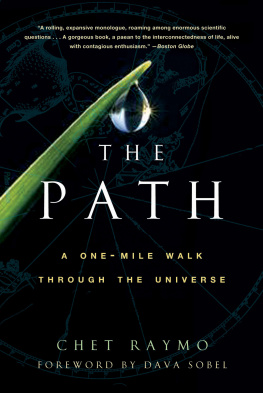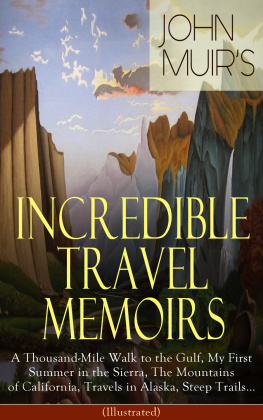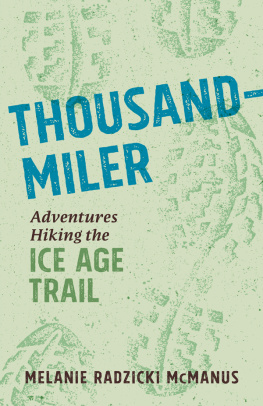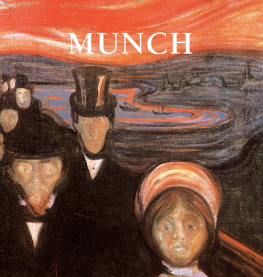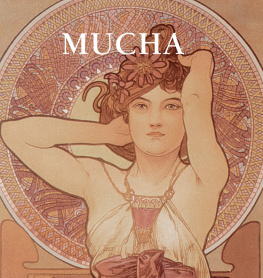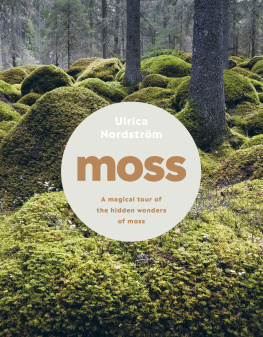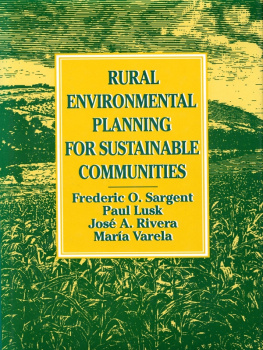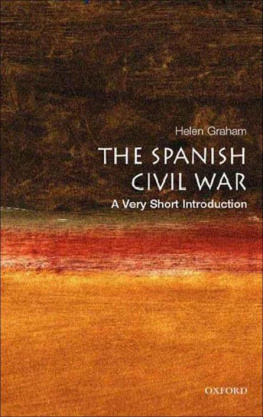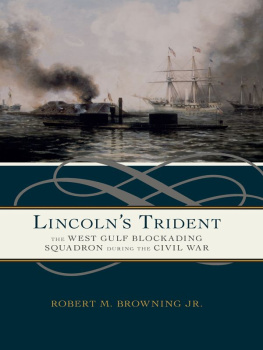Badè William Frederic - A Thousand-Mile Walk to the Gulf
Here you can read online Badè William Frederic - A Thousand-Mile Walk to the Gulf full text of the book (entire story) in english for free. Download pdf and epub, get meaning, cover and reviews about this ebook. City: Newburyport, year: 2018, publisher: Dover Publications, genre: Art. Description of the work, (preface) as well as reviews are available. Best literature library LitArk.com created for fans of good reading and offers a wide selection of genres:
Romance novel
Science fiction
Adventure
Detective
Science
History
Home and family
Prose
Art
Politics
Computer
Non-fiction
Religion
Business
Children
Humor
Choose a favorite category and find really read worthwhile books. Enjoy immersion in the world of imagination, feel the emotions of the characters or learn something new for yourself, make an fascinating discovery.

- Book:A Thousand-Mile Walk to the Gulf
- Author:
- Publisher:Dover Publications
- Genre:
- Year:2018
- City:Newburyport
- Rating:4 / 5
- Favourites:Add to favourites
- Your mark:
- 80
- 1
- 2
- 3
- 4
- 5
A Thousand-Mile Walk to the Gulf: summary, description and annotation
We offer to read an annotation, description, summary or preface (depends on what the author of the book "A Thousand-Mile Walk to the Gulf" wrote himself). If you haven't found the necessary information about the book — write in the comments, we will try to find it.
A Thousand-Mile Walk to the Gulf — read online for free the complete book (whole text) full work
Below is the text of the book, divided by pages. System saving the place of the last page read, allows you to conveniently read the book "A Thousand-Mile Walk to the Gulf" online for free, without having to search again every time where you left off. Put a bookmark, and you can go to the page where you finished reading at any time.
Font size:
Interval:
Bookmark:


JOHN MUIR ABOUT 1870

Bibliographical Note
This Dover edition, first published in 2018, is an unabridged republication of the work originally published in 1916 by the Houghton Mifflin Company, Boston and New York.
Readers should be aware that the text in places contains cultural references characteristic of the era, which may be deemed offensive by modern standards.
Library of Congress Cataloging-in-Publication Data
Names: Muir, John, 1838-1914, author. | Bade, William Frederic, 1871-1936, editor.
Title: A thousand-mile walk to the Gulf / John Muir.
Other titles: 1000-mile walk to the Gulf
Description: Dover edition. | Mineola, New York : Dover Publications, Inc., [2018] | This Dover edition, first published in 2018, is an unabridged republication of the work originally published in 1916 by the Houghton Mifflin Company, Boston and New York. Provided by publisher. | Includes index.
Identifiers: LCCN 2017045152| ISBN 9780486823980 | ISBN 0486823989
Subjects: LCSH: Southern StatesDescription and travel. | BotanySouthern States. | Natural historySouthern States. | Natural historyCuba. | CubaDescription and travel. | CaliforniaDescription and travel. | WalkingUnited States. | Muir, John, 1838-1914Diaries. | Muir, John, 1838-1914TravelSouthern States. | NaturalistsUnited StatesBiography.
Classification: LCC F215 .M95 2018 | DDC 917.504-dc23
LC record available at https://lccnloc.gov/2017045152
Manufactured in the United States by LSC Communications
82398901 2018
www.doverpublications.com
CONTENTS
ILLUSTRATIONS
Photograph by Bradley & Rulofson, San Francisco, CA.
Photograph by Theodore Eitel
Photograph courtesy of the Louisville and Nashville Railroad
Photograph courtesy of the Louisville and Nashville Railroad
Photograph by Herbert W. Gleason
Photograph by Herbert W. Gleason
Photograph by Herbert W. Gleason
Photograph by Herbert W. Gleason
Photograph by Herbert K. Job
From Mr. Muirs sketch in the original journal
From a photograph
From a sketch by Mr. Muir
INTRODUCTION
John Muir, Earth-planet, Universe.These words are written on the inside cover of the notebook from which the contents of this volume have been taken. They reflect the mood in which the late author and explorer undertook his thousand-mile walk to the Gulf of Mexico a half-century ago. No less does this refreshingly cosmopolitan address, which might have startled any finder of the book, reveal the temper and the comprehensiveness of Mr. Muirs mind. He never was and never could be a parochial student of nature. Even at the early age of twenty-nine his eager interest in every aspect of the natural world had made him a citizen of the universe.
While this was by far the longest botanical excursion which Mr. Muir made in his earlier years, it was by no means the only one. He had botanized around the Great Lakes, in Ontario, and through parts of Wisconsin, Indiana, and Illinois. On these expeditions he had disciplined himself to endure hardship, for his notebooks disclose the fact that he often went hungry and slept in the woods, or on the open prairies, with no cover except the clothes he wore.
Oftentimes, he writes in some unpublished biographical notes, I had to sleep out without blankets, and also without supper or breakfast. But usually I had no great difficulty in finding a loaf of bread in the widely scattered clearings of the farmers. With one of these big backwoods loaves I was able to wander many a long, wild mile, free as the winds in the glorious forests and bogs, gathering plants and feeding on Gods abounding, inexhaustible spiritual beauty bread. Only once in my long Canada wanderings was the deep peace of the wilderness savagely broken. It happened in the maple woods about midnight, when I was cold and my fire was low. I was awakened by the awfully dismal howling of the wolves, and got up in haste to replenish the fire.
It was not, therefore, a new species of adventure upon which Mr. Muir embarked when he started on his Southern foot-tour. It was only a new response to the lure of those favorite studies which he had already pursued over uncounted miles of virgin Western forests and prairies. Indeed, had it not been for the accidental injury to his right eye in the month of March, 1867, he probably would have started somewhat earlier than he did. In a letter written to Indianapolis friends on the day after the accident, he refers mournfully to the interruption of a long-cherished plan. For weeks, he writes, I have daily consulted maps in locating a route through the Southern States, the West Indies, South America, and Europea botanical journey studied for years. And so my mind has long been in a glow with visions of the glories of a tropical flora; but, alas, I am half blind. My right eye, trained to minute analysis, is lost and I have scarce heart to open the other. Had this journey been accomplished, the stock of varied beauty acquired would have made me willing to shrink into any corner of the world, however obscure and however remote.
The injury to his eye proved to be less serious than he had at first supposed. In June he was writing to a friend: I have been reading and botanizing for some weeks, and find that for such work I am not very much disabled. I leave this city [Indianapolis] for home to-morrow, accompanied by Merrill Moores, a little friend of mine. We will go to Decatur, Illinois, thence northward through the wide prairies, botanizing a few weeks by the way.... I hope to go South towards the end of the summer, and as this will be a journey that I know very little about, I hope to profit by your counsel before setting out.
In an account written after the excursion he says: I was eager to see Illinois prairies on my way home, so we went to Decatur, near the center of the State, thence north [to Portage] by Rockford and Janesville. I botanized one week on the prairie about seven miles southwest of Pecatonica.... To me all plants are more precious than before. My poor eye is not better, nor worse. A cloud is over it, but in gazing over the widest landscapes, I am not always sensible of its presence.
By the end of August Mr. Muir was back again in Indianapolis. He had found it convenient to spend a botanical week among his University friends in Madison. So keen was his interest in plants at this time that an interval of five hours spent in Chicago was promptly turned to account in a search for them. I did not find many plants in her tumultuous streets, he complains; only a few grassy plants of wheat, and two or three species of weeds,amaranth, purslane, carpet-weed, etc.,the weeds, I suppose, for man to walk upon, the wheat to feed him. I saw some green algae, but no mosses. Some of the latter I expected to see on wet walls, and in seams on the pavements. But I suppose that the manufacturers smoke and the terrible noise are too great for the hardiest of them. I wish I knew where I was going. Doomed to be carried of the spirit into the wilderness, I suppose. I wish I could be more moderate in my desires, but I cannot, and so there is no rest.
The letter noted above was written only two days before he started on his long walk to Florida. If the concluding sentences still reflect indecision, they also convey a hint of the overmastering impulse under which he was acting. The opening sentences of his journal, afterwards crossed out, witness to this sense of inward compulsion which he felt. Few bodies, he wrote, are inhabited by so satisfied a soul that they are allowed exemption from extraordinary exertion through a whole life. After reciting illustrations of natures periodicity, of the ebbs and flows of tides, and the pulsation of other forces, visible and invisible, he observes that so also there are tides not only in the affairs of men, but in the primal thing of life itself. In some persons the impulse, being slight, is easily obeyed or overcome. But in others it is constant and cumulative in action until its power is sufficient to overmaster all impediments, and to accomplish the full measure of its demands. For many a year I have been impelled toward the Lords tropic gardens of the South. Many influences have tended to blunt or bury this constant longing, but it has outlived and overpowered them all.
Next pageFont size:
Interval:
Bookmark:
Similar books «A Thousand-Mile Walk to the Gulf»
Look at similar books to A Thousand-Mile Walk to the Gulf. We have selected literature similar in name and meaning in the hope of providing readers with more options to find new, interesting, not yet read works.
Discussion, reviews of the book A Thousand-Mile Walk to the Gulf and just readers' own opinions. Leave your comments, write what you think about the work, its meaning or the main characters. Specify what exactly you liked and what you didn't like, and why you think so.

